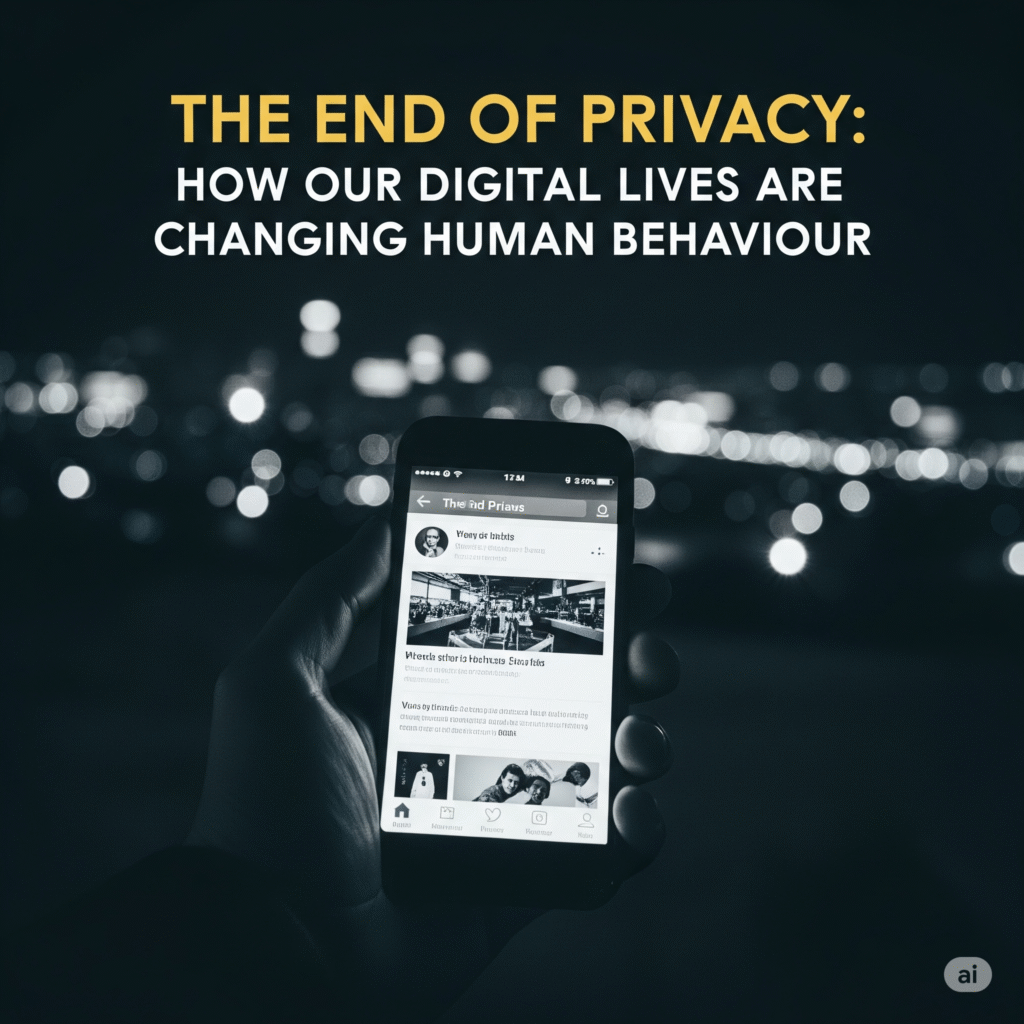The End of Privacy: In today’s hyperconnected world, privacy is no longer what it used to be. Every click, swipe, and scroll leaves a digital footprint—one that companies, governments, and even strangers can track. As technology evolves, so does our behaviour. But what happens when constant connectivity starts to reshape how we think, act, and interact?
Let’s explore how the end of privacy is not just a digital issue, but a human one.
Privacy Is Dead—or Is It?
It may sound dramatic, but many experts agree: traditional notions of privacy are fading fast. In the age of smartphones, smart homes, and social media, our personal data is constantly collected, analysed, and monetised. Even seemingly harmless actions, like “liking” a post or using a fitness app, contribute to an ever-growing profile about who we are.
Although some people still value privacy, many have unknowingly accepted a trade-off: convenience in exchange for surveillance.
How the Loss of Privacy Alters Human Behaviour
As our lives become more digital, our behaviours subtly shift. Here’s how:
1. We Perform More, and Live Less Authentically
Social media has turned everyday life into a stage. Likes, views, and shares create invisible pressure to present a curated version of ourselves. As a result, many people modify their behaviour to gain approval, rather than express their true selves.
2. We Self-Censor More Frequently
When you know you’re being watched by friends, employers, or algorithms, you act differently. People are increasingly careful about what they post, say, or search. This constant surveillance leads to self-censorship, which can stifle creativity, honest dialogue, and even emotional expression.
3. We Value Attention Over Intimacy
In the pursuit of digital recognition, many trade private moments for public validation. This behaviour reflects a larger trend: privacy is no longer seen as empowering, but as something to be sacrificed for visibility or influence.
4. We Lose a Sense of Boundaries
From GPS tracking to personalised ads, the line between public and private has blurred. Children grow up with smart devices that monitor their habits. Adults accept cookies without thinking twice. Over time, we become desensitised to intrusion, and our expectations for personal space shift.
The Psychological Effects of Living Publicly
Beyond behaviour, the loss of privacy has deeper psychological impacts:
-
Increased Anxiety – Constant connectivity can lead to information overload and a fear of missing out (FOMO).
-
Reduced Trust – People become more suspicious and guarded, unsure of how their data is being used.
-
Hyperawareness – Knowing you’re always “on display” can lead to social exhaustion and overthinking.
These effects are subtle but cumulative. They influence not just how we behave online, but who we become offline.
Can We Reclaim Our Digital Autonomy?
Although it feels like privacy is a thing of the past, all is not lost. Here’s how we can take small but powerful steps to reclaim it:
1. Be Selective With Sharing
Think before you post. Ask yourself: Is this for connection or validation? Not every moment needs to be shared publicly.
2. Limit Data Permissions
Review app settings and browser extensions. Revoke access to unnecessary data and deny permissions that seem intrusive.
3. Use Encrypted Tools
Choose platforms that prioritise privacy, such as encrypted messaging apps and secure browsers.
4. Practice Digital Minimalism
Take breaks. Reduce screen time. Reclaim your attention and time from the devices and platforms that demand it.
Final Thoughts
We live in an era where privacy is not guaranteed—it must be consciously protected. As our digital lives expand, so does the impact on our habits, our minds, and our relationships. Understanding these changes is the first step in shaping a healthier, more intentional digital future.
Because in the end, how we protect our privacy is a reflection of how we value our freedom.
🔗 Further Reading & Trusted Sources
Digital Detox: Why Your Brain Needs a Break from Screens
5 Psychology-Based Habits to Boost Focus in a Digital World
The Elusive Art of Discipline: Why We Struggle and How to Find Our Rhythm
How Modern Habits Are Changing Human Nature
Harvard Business Review – You’re Not Paranoid: Your Phone Is Listening to You


Thank you for your sharing. I am worried that I lack creative ideas. It is your article that makes me full of hope. Thank you. But, I have a question, can you help me?